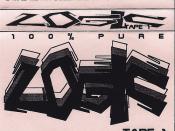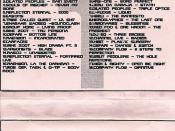Logic is the study of good thinking and reasoning. Its scope involves validity, truth, falsity, argument and inference. Logic is the science and the art of correct thinking. The study is comprised of a systematized knowledge of governing correct thinking and its principles. Zeno, a Greek philosopher, first introduced logic from the original term "logike" meaning "discourses of thinking "or "treatises on thought". The goal of logic is to attain truth and validity through good reasoning.
Logic can be divided into 2 divisions: Traditional logic and Symbolic Logic. Aristotelian logic or traditional logic is known as the first method devised in attaining validity in arguments. It was invented by Aristotle and it used logical arguments that reasons out from a universal idea to a lesser or more particular concept. The second and much recent division is the symbolic logic which uses symbols in analyzing arguments. This kind of logic is also known as mathematical logic and it is deductive in its approach of reasoning in arguments.
Under the division of formal logic roots 2 more sub-divisions: Formal and Material logic. When an argument is analyzed through its form and its arrangement, formal logic is applied. Formal logic is identified as the logic that is subjected to the form of an argument's process and the proper arrangement of the argument. When the matter of an argument or its content is studied, material logic is applied. Material logic deals with the meaningful content of the argument. Truth of an argument's content is much prioritized in material logic while validity is only the end or goal in formal logic.
Aims and references of logic can be to attain simple apprehension that produces ideas, judgment that is expressed in propositions and reasoning that is expressed through inference or argument. Idea...


